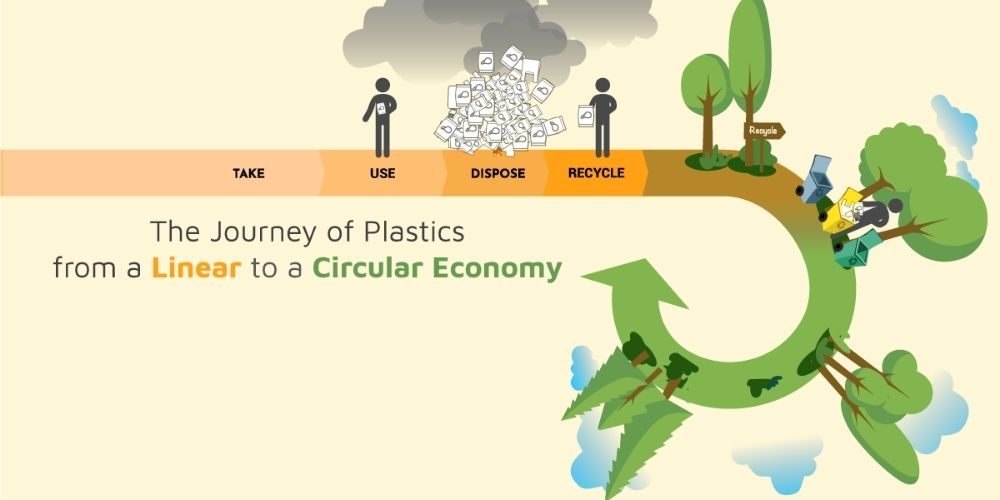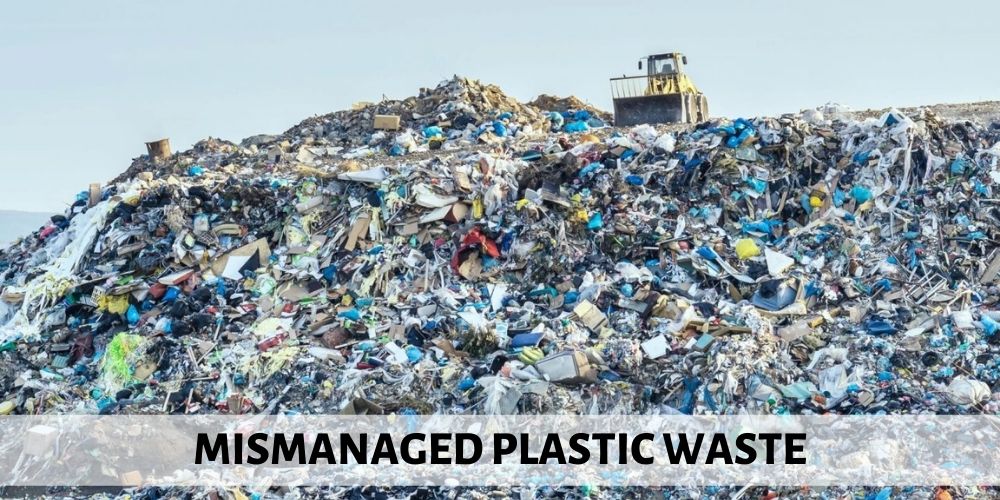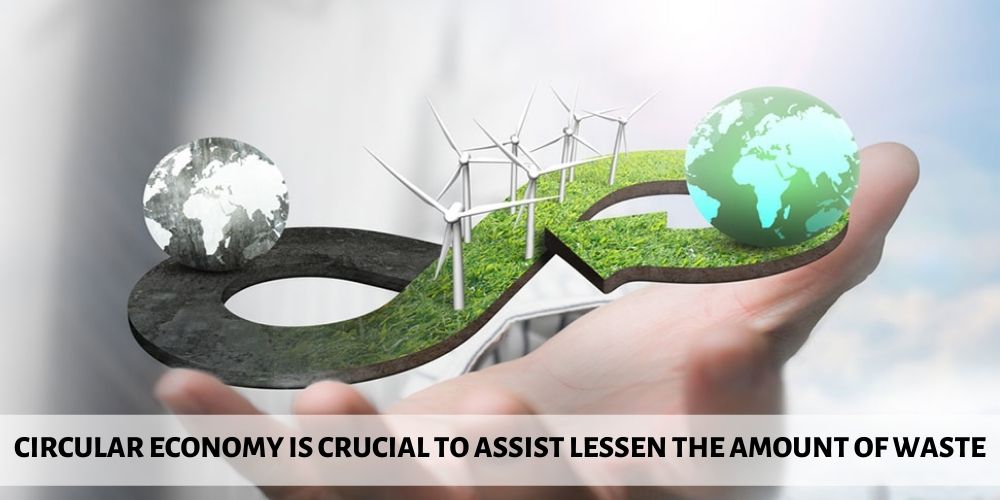
Plastic waste and circular economy
Posted on 03-10-2022 12:54:21
Our dating with plastic desires rethinking. Plastics are flexible substances, but the way we use them is surprisingly wasteful. We take oil and gas from the earth to make plastic merchandise which is frequently designed to be used only once, after which we throw them away. This is what we call a linear take-make-waste version.
Year on year, thousands and thousands of tonnes of plastic, worth billions of bucks, come to be in landfills, is burned or leaked into the environment. An astounding 8 million tonnes leaks into the ocean each year — and that quantity is growing. If we don’t reconsider its use, there might be extra plastic within the ocean than fish (through weight) by using 2050.

No one desires to be in this function. Is it viable to rethink the way we design, use, and reuse plastics to create a circular economic system for plastic?
Instead of locating approaches to control the growing amounts of plastic waste, answers ought to intention to generate much less waste, something that around financial system ought to acquire.
With urbanization and the developing worldwide populace, a whole lot of consciousness has been located on locating answers for enhancing strong waste control as a manner to lower the growing quantities of waste being generated. However, governments have to alternatively have a look at the basis cause of the difficulty and shift closer to exploring approaches to generate less waste.
Annually, the arena generates 2.01 billion lots of municipal solid waste, which includes residential, business, and institutional waste, and that is projected to grow to 3.40 billion lots via 2050. Similarly, plastic manufacturing and waste have also been increasing considerably. Every 12 months, almost 400 million lots of plastic are produced, and that is having large impacts on the environment.
During the pandemic, unmarried-use plastics are envisioned to have improved by using approximately 300%, and combined with unsustainable disposal practices, plastics will hold to have unfavorable effects on natural resources and further boost up climate alternate, in step with The Economist. Transitioning to a circular economy and moving away from the conventional “take-make-dispose” linear model will address these problems and facilitate sustainable increase.
While there is absolute confidence that plastics have progressed people’s lives—from revolutionizing remedy to presenting substances for products that are extra convenient, safer, and cheaper, among many different advantages—there is a downside, especially when the extraction of uncooked materials and disposal of waste aren’t controlled sustainably.
The production of plastics relies closely on fossil fuels, which emit greenhouse gases during the special stages of a product’s life cycle, such as extraction, delivery, refining, production, and disposal. It is projected that the industry will account for 20% of general worldwide oil use through 2050 if present-day production tendencies preserve, in line with the European Environment Agency. Therefore, it’s far essential to shift away from using raw substances consisting of fossil fuels to supply plastics, something that around financial system ought to offer.
The unsustainable troubles related to plastics do not end with the full-size amounts of greenhouse gasoline emissions generated from the manufacturing stages; in addition, they extend to waste management. Only an insignificant 9% of plastic is recycled, whilst 12% is incinerated, and the closing 79% ends
up as “mismanaged waste” in landfills or the natural surroundings, in keeping with the United Nations Environment Programme.
Mismanaged plastic waste refers to inadequately disposed of waste that has the capacity to be formally disposed of or managed in a sustainable manner. While facts at the greenhouse gasoline emissions of plastic pollutants is hard to measure, lots of the mismanaged waste finally ends up in rivers, coastal zones, and oceans. Once released into the environment, plastic waste poses an extreme hazard to flora and fauna and natural ecosystems.

In oceans, many fish and different marine existence, which include plankton, ingest full-size amounts of plastics and microplastics, which may be poisonous for them. This can affect the capability of plankton to sequester CO2, a process wherein they play a key role.
By 2050, it’s miles expected that our oceans could contain around 937 million heaps of plastic.
To apprehend the round economic system possibilities and the ability for decreasing waste, it is critical to check out which industries are producing the most plastic and which of them are least green in terms of dealing with waste sustainably. Packaging leads both plastic production and plastic waste generated.
Besides building and production, it’s miles obvious that every one of the opposite sectors has unsustainable waste control practices in relation to plastics, as the amount of plastic waste generated is as a minimum half of the quantity produced. For those sectors, a circular economy is crucial to assist lessen the amount of waste.

The enterprise desires to be redesigned in such a manner that plastic does not end up as waste, accordingly addressing the difficulty at its core. Finding ways to do away with the production of unmarried-use plastics and plastics that we don’t need is vital. A circular economic system provides possibilities for recycling and using recycled materials in place of counting on extracting more uncooked substances to keep up with manufacturing and intake needs.
Moreover, around the economic system might assist to narrow and gradual flows as well as creating new loops for plastics, utilizing it as a useful resource, so that it doesn’t become in landfills, the surroundings, and even incinerators.
Shifting around the economic system may also assist to obtain extra of the Sustainable Development Goals (SDGs), as it would promote investments in revolutionary era and infrastructure, lessen the inequalities in the casual area, and support economic improvement.
A circular financial system for plastics affords many possibilities for growing Asia and the Pacific, considering the location struggles with aid performance and waste control. By 2050, in developing and emerging countries, waste technology in keeping with capita is projected to increase by means of 40%, as compared to developed nations, which are predicted to look growth of 19%, in keeping with the World Bank.
The transition to a round financial system for plastics will no longer be easy. Among the various limitations are a loss of institutional potential, an underdeveloped personal area, restricted access to generation and innovation,
economic constraints, and a lack of infrastructure. Policies that sell around the economy ought to be aligned with present coverage priorities that cope with the SDGs.
Governments have to perceive the synergies among around economic system and current national strategies and verify the size of possibility in transitioning to around economic system across key sectors of the financial system, which includes plastics. Increasing get admission to finance for private investors, multilateral improvement banks, and other institutional traders are also key, particularly for enhancing generation, growing institutional ability, and building the vital infrastructure.
Finally, the whole technique desires to be inclusive from the beginning. A circular economic system brings collectively each the formal and casual sectors, governments, the personal sector, and civil society across all degrees of the cost chain, all the way to waste management. Therefore, the collaboration will be crucial.
It is imperative for policymakers inside the vicinity to understand that around economy does not translate into an economic loss. By 2030, a round economy ought to generate an extra $4.5 trillion annually and offer more respectable paintings opportunities through process advent inside the formal area. Instead of searching for methods to manage the growing amounts of waste, answers must intention to generate less waste, something that around economic system could acquire.